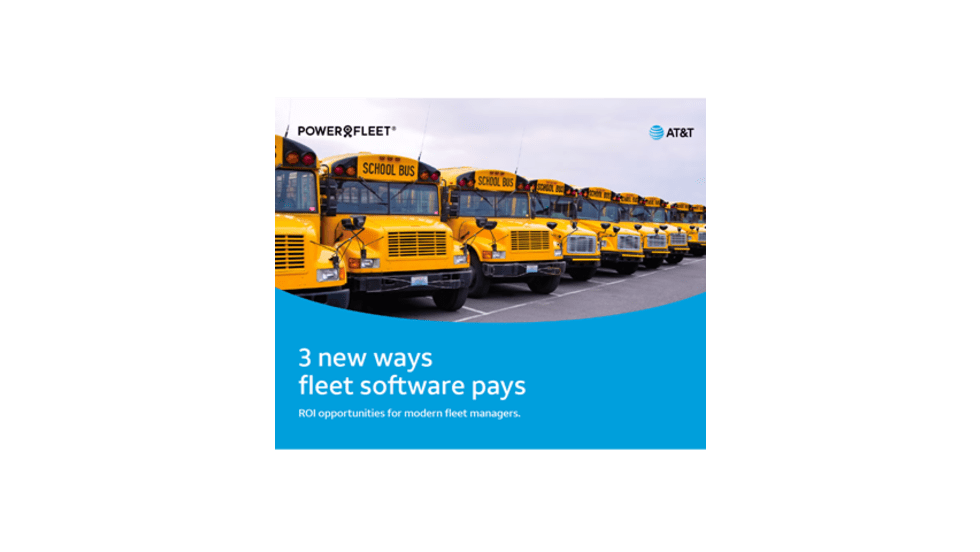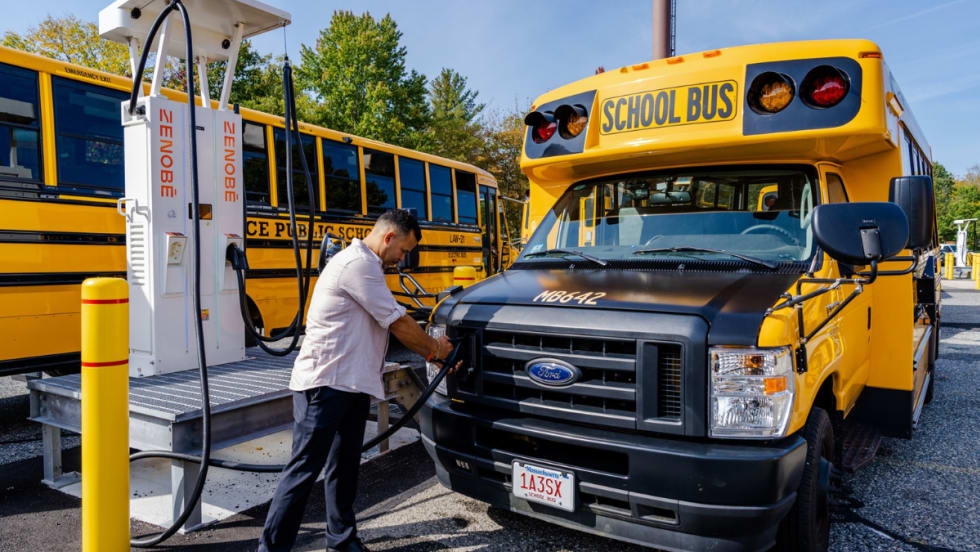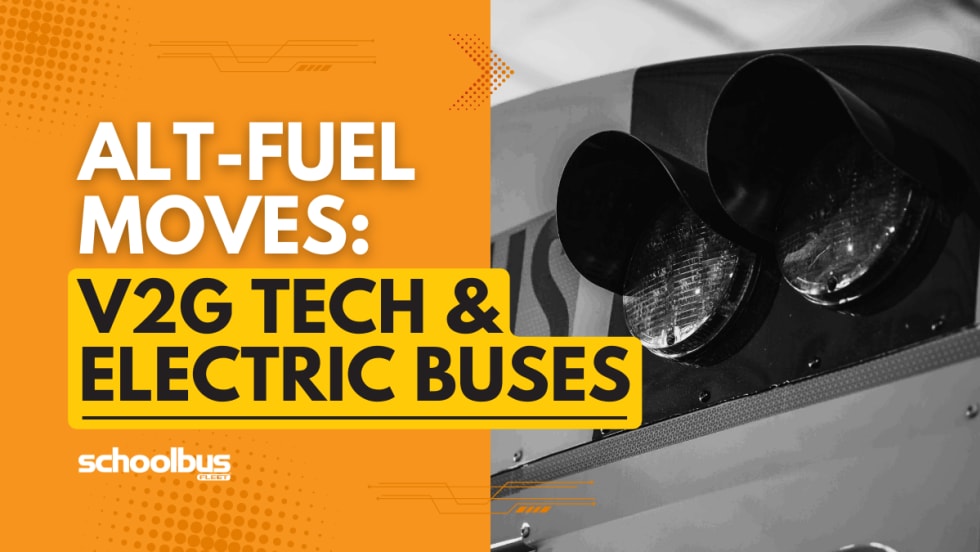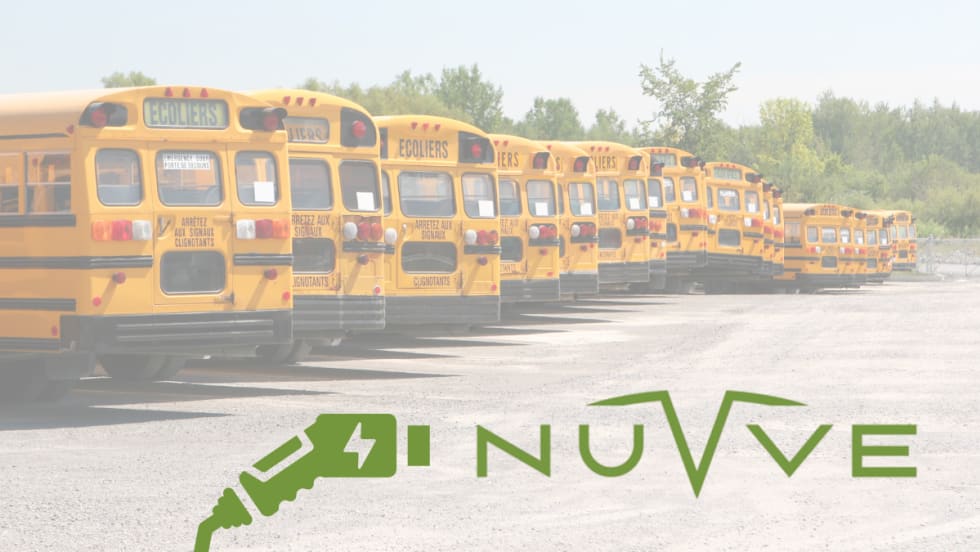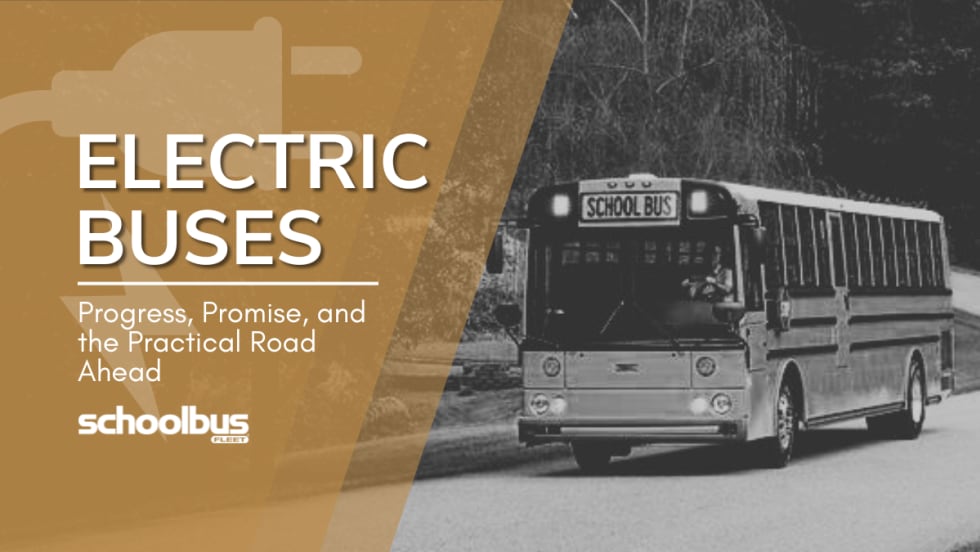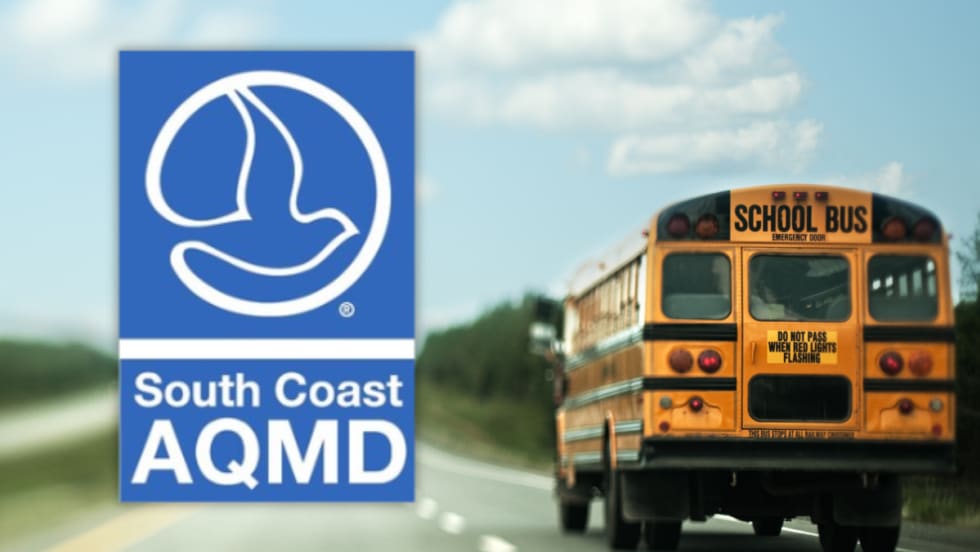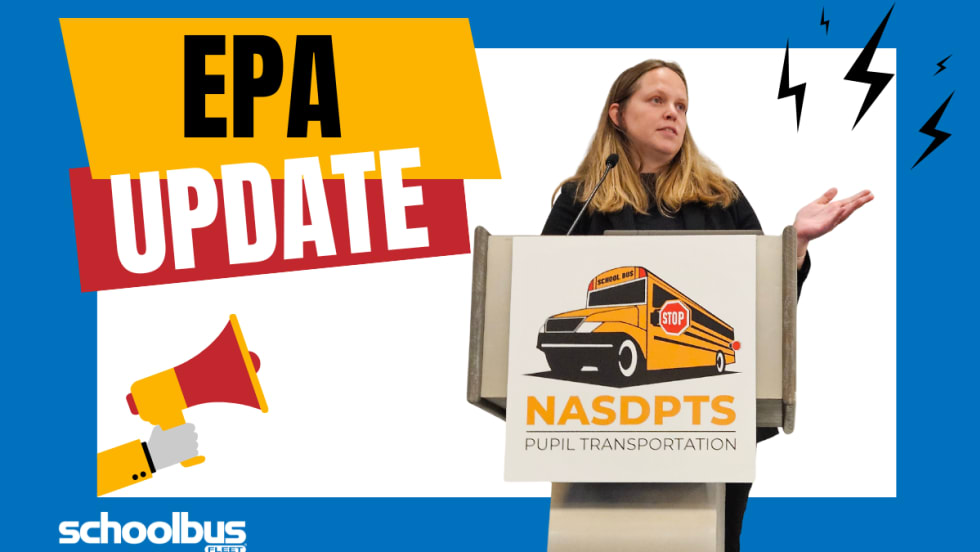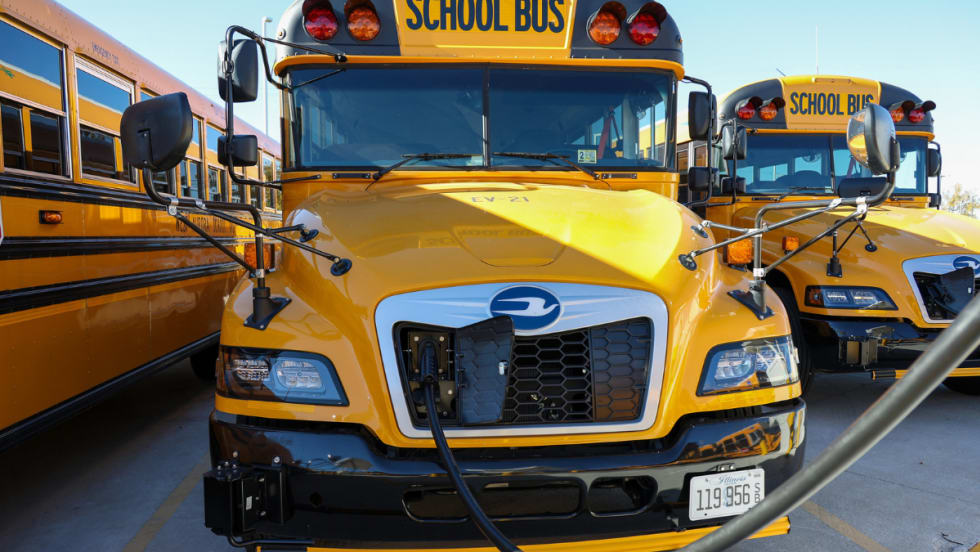Jason Gillis and his transportation team at Everman (Texas) Independent School District are pioneers in the state when it comes to electric school buses. The district added three Blue Bird Vision Electric school buses to its fleet — not only a first for them but for all Texas pupil transporters — in October. The district is already experiencing significant maintenance cost savings of up to 90% on fuel over the last couple months.
In this interview with School Bus Fleet, Gillis, the district’s transportation director, reveals the process behind the district’s integration of electric buses, what safety measures his department has deployed due to the COVID-19 pandemic, and why he wishes more people would consider a bus driving career.
1. How did you get your start in pupil transportation? Had you worked in another industry before?
I was a high school science teacher, coach, and bus driver, but also worked in auto parts part time when I was teaching. In college, I worked as a machine operator; mechanic; in parts and fuel sales; and even at some fast-food places while putting myself and wife through college.
2. Your district recently received the first electric school buses in the entire state. What prompted you and your team to add electric buses to your fleet? Are there any other alternative-fuel buses in your fleet?
We were originally looking to see what was available and found the EarthX [an international nonprofit environmental organization] meeting in Dallas in 2019, where multiple options were presented. We were looking for a healthier version — in terms of air quality, but also, no more spilled fuel on hands or the ground when fueling, or fluid and filter changes. We also wanted an option that made financial sense to our community, students, and parents. Electric buses were definitely viable, especially with Volkswagen (VW) settlement grant money. We do not have any other alternative-fuel buses in this fleet, but I have worked for another district that had alternative-fuel buses.
3. How is it going so far? What are the successes and lessons learned at this point?
We have placed each bus at a different school. At two of those schools, they only have that one bus. So, bus emissions have dropped by 100% at each school. We have saved quite a bit of money, since there is no diesel fuel being used on the electric buses. We are looking at a 90% savings in fueling costs over the last two months.
Since the buses have to be fueled every day, if there is ever an issue with a charger not working, we just plug the bus into one of the others during the day, instead of just at night, when they are normally charged.
Patience is key in the process, taking into account what fiscal year the district will need to allocate funds, as it will take eight to 10 months to build the buses. Our charging station only took a few weeks to build, but it was difficult trying to find a charger for a school bus when we had no other districts in Texas to ask. Once the buses came in and we found that they do drive a little differently, we put in some training for the drivers who were assigned the routes.
4. Of course, this is all impacted by the pandemic. How many students has your department been transporting since the fall, and what protocols do you have in place?
We are transporting about one-third (500 to 700) of the students we normally do. We check temperatures before students get on the bus, students use the automatic hand sanitizer dispensers that we installed on the buses, and they are required to wear masks. Students sit by themselves unless they need to sit by someone from the same household. Once the drivers are done with their routes, they sanitize the interior of the bus and wipe down high-touch areas.
5. What do you wish people outside the world of student transportation knew about it?
I wish more people would be willing to give bus driving a try. It is a very fulfilling job, and even though hours are early and late, we can be a key influence in kids’ lives; oftentimes we are the first and last school officials those kids see in a day, and sometimes the first and last adults they see for the whole day. I like getting to work with students, parents, and district staff. It helps that our drivers and aides in our transportation department are awesome, and always put kids first. It’s nice to know you make a difference.






